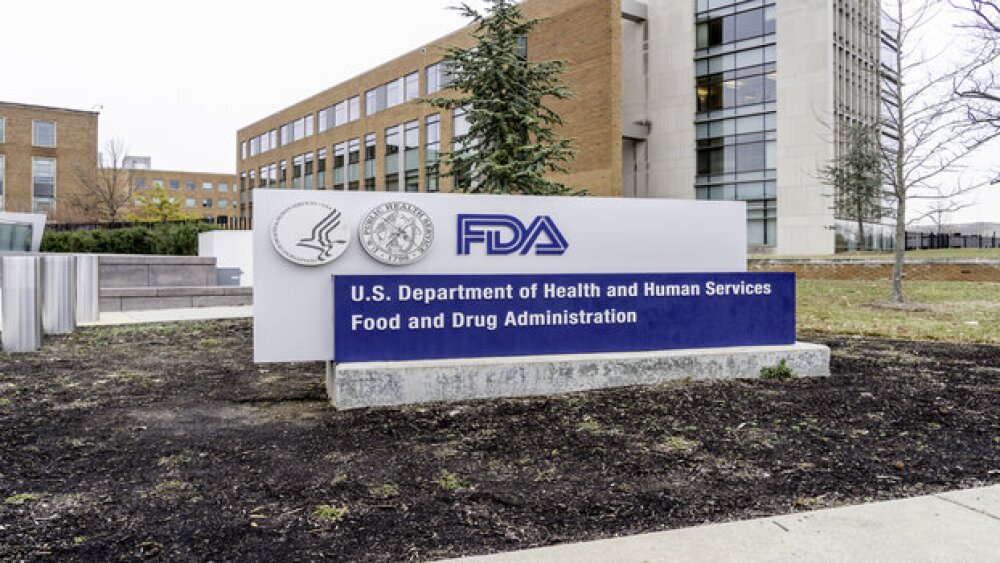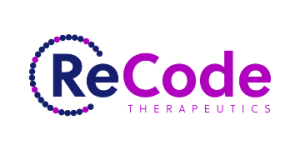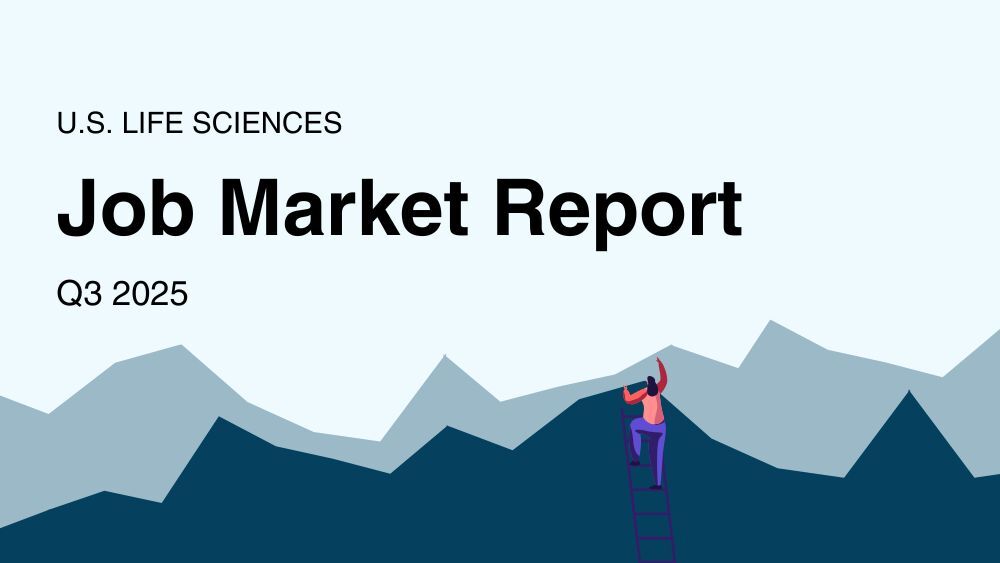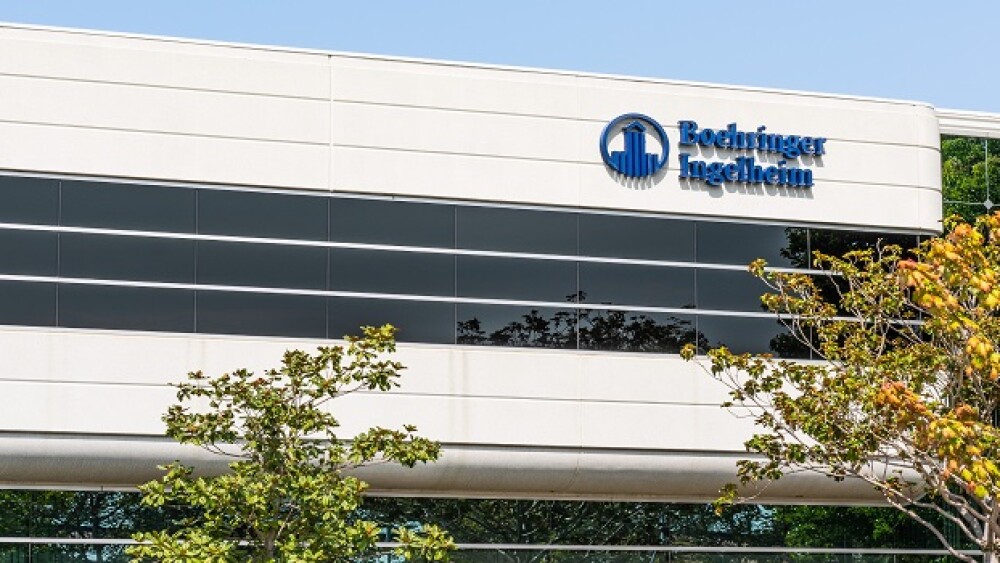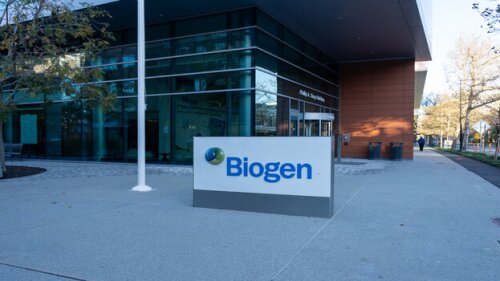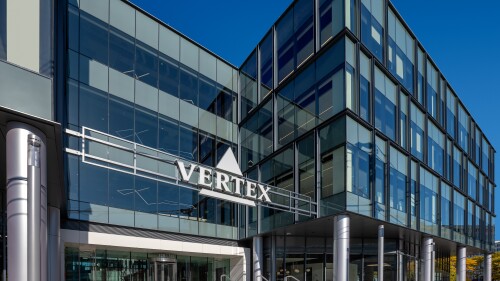The new target action date for Blenrep, which GSK is proposing for the second-line treatment of relapsed or refractory multiple myeloma, is Oct. 23.
The latest round of terminations, which will take effect Sept. 15, comes after Genentech fired more than 500 employees in the last 15 months.
Roche obtained CT-173, a PYY mimetic, in its $2.7 billion acquisition of Carmot Therapeutics in December 2023. The company reported the change in its second quarter earnings call.
The Washington, D.C.–Baltimore area ranks in the top six for life sciences R&D and manufacturing talent, according to a CBRE report. The Maryland Department of Commerce’s director of life sciences discusses the workforce and how the state is adapting to changing needs.
While FDA Commissioner Marty Makary emphasizes learning and humility, the FDA has systematically removed the very experience that would make change possible.
The decision follows last month’s vote of the CDC’s revamped vaccine advisory committee. Thimerosal, mostly removed from vaccines decades ago, has long been a target of anti-vaccine advocates for unfounded links to autism and adverse health outcomes.
FEATURED STORIES
Given their seven-figure price tags, it’s not clear how accessible the would-be cures will be to U.S. patients on public or private insurance.
Despite concerns raised in FDA briefing documents about Eli Lilly’s Alzheimer’s treatment, donanemab, the committee concluded that the benefits outweighed the risks.
The use of artificial intelligence in the development of cancer vaccines allows for individualized therapy, but the prospect of an ever-changing product poses new challenges for drug developers and regulators.
Both Eli Lilly and the partnered companies Boehringer Ingelheim and Zealand Pharma have mid-stage data readouts this week, fueling the race in metabolic dysfunction-associated steatohepatitis.
There are multiple ways biopharmas create inclusive workplaces for LGBTQ+ employees, and they go beyond employee resource groups and benefits.
In this deep dive BioSpace analyzes the neuropsychedelic therapeutics pipeline, which grabbed headlines in February when the FDA accepted the New Drug Application for Lykos Therapeutics’ MDMA capsules for PTSD.
LATEST PODCASTS
In this episode presented by PII, BioSpace’s head of insights discusses how to relieve clinical trial patients of technological burden to improve compliance with guests Oliver Eden and Travis Webb.
Pfizer and Novo Nordisk continue to fight for ownership of obesity startup Metsera; CDER Director George Tidmarsh leaves his position amid an ongoing probe into his “personal conduct”; FDA reverses course on approval requirements for uniQure’s Huntington’s gene therapy; Sarepta’s exon-skipping Duchenne muscular dystrophy drugs fail confirmatory study.
In this episode presented by Element Materials Technology, BioSpace’s head of insights discusses how China, historically focused on manufacturing, is increasingly becoming an innovation leader, particularly in pharmaceuticals, with guests Dr. Jihye Jang-Lee and Dr. Khanh Courtney. Ultimately, balanced strategies involve domestic capacity investments coupled with global collaboration.
Job Trends
Bristol Myers Squibb Announces Acceptance of U.S. and EU Regulatory Filings for Neoadjuvant Opdivo (nivolumab) and Chemotherapy Followed by Surgery and Adjuvant Opdivo in Resectable Non-Small Cell Lung Cancer.
Subscribe to Genepool
Subscribe to BioSpace’s flagship publication including top headlines, special editions and life sciences’ most important breaking news
SPECIAL EDITIONS
In this deep dive, BioSpace investigates China’s rise as a biotech powerhouse.
In this deep dive, BioSpace explores the next big thing in obesity.
BioSpace did a deep dive into biopharma female executives who navigated difficult markets to lead their companies to high-value exits.
DEALS
-
Banking on its lead antibody APG777 for atopic dermatitis, Apogee Therapeutics is filing an initial public offering for an as-yet-undisclosed value.
-
Citing anti-trust issues, six states—California, Illinois, Minnesota, New York, Washington and Wisconsin—are joining the FTC’s legal challenge to Amgen’s nearly $27.8 billion buyout of Horizon.
-
Under the merger announced Thursday, Tourmaline shareholders will own nearly 80% of the new company, which will retain its name and continue to focus on developing its anti-IL 6 antibody.
-
Eli Lilly stands to gain access to DICE Therapeutics’ DELSCAPE platform, which enables the design of orally available molecules for autoimmune and inflammatory diseases.
-
The stock deal aims to strengthen Coherus Biosciences’ position in the field of cancer therapeutics and expand its product portfolio.
WEIGHT LOSS
-
Phase I results published Monday suggest Amgen’s investigational weight-loss drug MariTide produces longer-lasting effects than GLP-1s currently on the market.
-
The investment arm of the Novo Nordisk Foundation is acquiring contract development and manufacturing organization Catalent to help meet high demand for Ozempic and Wegovy.
-
The biotech is taking a synergistic approach to obesity with two muscle-preserving antibodies set to enter a Phase II study in mid-2024 in combination with existing incretin-based treatments.
-
Driven by soaring demand for its diabetes and weight loss drugs, Novo Nordisk on Wednesday reported better-than-expected full-year 2023 earnings with a 31% sales increase.
-
Stringent regulation, manufacturing costs and absence of price control contribute to high GLP-1 agonist costs in the U.S. Patients could go to other countries for cheaper treatment.
POLICY
-
A federal judge ruled last week that the U.S. government can use its economic standing as a bulk purchaser to negotiate for better deals, handing Boehringer Ingelheim a loss in its legal challenge to the Inflation Reduction Act.
-
President Joe Biden and Sen. Bernie Sanders in a Tuesday op-ed in USA Today called on Novo Nordisk and Eli Lilly to “stop ripping off Americans” with “unconscionably high prices” for their GLP-1 medicines.
-
Despite an uncertain legislative path to becoming law, the BIOSECURE Act has already impacted the biopharma industry’s confidence in Chinese service providers and prompted efforts to diversify manufacturing partners.
-
As congressional pressure increases on WuXi AppTec and other China-based companies over alleged ties to the Chinese government, India’s contract development and manufacturing organization sector could benefit.
-
This week on Denatured, Head of Insights Lori Ellis and guests discuss the implications of not addressing the DE&I data gaps for the future.
There is something of a recurring theme among the life science, healthcare and biopharma industries: shortage of skilled employees will lead to a decrease in innovation.
Is your dream job with a large organization or a small company? It’s common for life sciences professionals to have a preference one way or the other when considering employment opportunities.
Have you ever considered relocating for your career? If you have, you aren’t alone. According to a recent BioSpace Community Survey, 78% of life science professionals would be open to relocation for the right job opportunity.
To navigate each step along the way from an interview to a final offer, you should have a clear understanding of a timeline of events. These job search tips can help you with that.
Have you thought about what benefits are important to you? Would you request certain benefits from your current employer, or during an interview for a new job?
Most people avoid networking connections due to uncomfortable situations. In contrast, strategic networking can be extremely beneficial for your career.
HOTBEDS
REPORTS
In this Employment Outlook report, BioSpace explores current workforce sentiment, job activity trends and the prospective job and hiring outlook for 2025, particularly as it compares to the previous year.
BioSpace’s third report on diversity, equity, inclusion and belonging in life sciences examines dramatic shifts in attitude around diversity initiatives.
CANCER
-
The new company, BridgeBio Oncology Therapeutics, is looking to advance two KRAS inhibitors and a blocker of the interaction between the RAS and PI3K pathways.
-
Based on strong overall and progression-free survival data in its Phase III confirmatory study, Pfizer and Genmab’s antibody-drug conjugate Tivdak on Monday secured the FDA’s full approval for recurrent or metastatic cervical cancer that had progressed on or after chemotherapy.
-
AstraZeneca and Daiichi Sankyo’s antibody-drug conjugate Enhertu significantly improved progression-free survival in metastatic breast patients with low and ultralow HER2 expression levels who had received at least one line of systemic treatment.
-
The FDA on Tuesday approved Day One Biopharmaceuticals’ type II RAF inhibitor Ojemda, which is designed to penetrate the blood-brain barrier, for the treatment of relapsed or refractory pediatric low-grade glioma.
-
Bouncing back from a previous rejection, ImmunityBio on Monday secured the FDA’s green light for its IL-15 superagonist Anktiva for non-muscle invasive bladder cancer.
NEUROSCIENCE
-
Biogen’s $7.3 billion Reata acquisition and layoffs dominated this week’s news, while BMS and Roche reported second-quarter earnings and BioSpace looked at 12 late-stage neuro companies.
-
The Federal Trade Commission released new draft guidelines for assessing mergers, while an Alzheimer’s conference yielded promising data and J&J kicked off Q2 earnings season with a sound beat.
-
With Eisai and Biogen’s Leqembi now fully approved, researchers are exploring combinations—including with therapies targeting tau and microglial function—that could increase its effectiveness.
-
Following the full approval of Leqembi, the CMS suggests expanding its coverage of beta-amyloid PET scans, which could improve the uptake of novel Alzheimer’s disease treatments.
-
Part B of the study, cleared to proceed in Canada, remains on hold in the U.S. due to findings from non-clinical chronic toxicology studies.
CELL AND GENE THERAPY
-
The FDA previously placed two clinical studies on hold, including the Phase III trial in which the liver toxicity occurred. Intellia is working with experts to create a risk management program for nex-z.
-
Pfizer and Novo Nordisk continue to fight for ownership of obesity startup Metsera; CDER Director George Tidmarsh leaves his position amid an ongoing probe into his “personal conduct”; FDA reverses course on approval requirements for uniQure’s Huntington’s gene therapy; Sarepta’s exon-skipping Duchenne muscular dystrophy drugs fail confirmatory study.
-
The potential approval of Vertex’s IgAN therapy povetacicept in 2026 comes amid launch headwinds for the company’s non-opioid pain medicine Journavx and gene therapy Casgevy.
-
With a 100% response rate in a Phase II study, KYV-101 sets a new efficacy bar in generalized myasthenia gravis, according to analysts at William Blair.
-
The clinical hold comes days after Intellia voluntarily paused enrollment and dosing in the same two studies.











